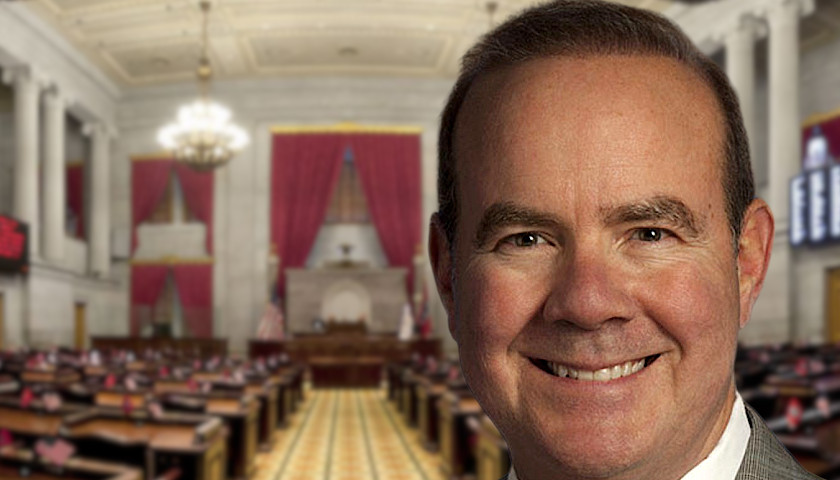Members of the Tennessee General Assembly will likely pass a bill into law that would require certain types of online auctioneers in the state to get a license to do business, said a state legislator.
That man, State Rep. Martin Daniel, R-Knoxville, and others told The Tennessee Star this week that legislators are acting at the behest of special interest groups and other lobbyists. These groups compete with online auctioneers and want the government to either regulate their rivals or possibly snuff them out of business outright, said Daniel and other experts, including a Tennessee-based online auctioneer.
“This thing got out of committee, so I would assume the chances (of it passing into law) are pretty good,” Daniel said.
“As far as the special interest groups are concerned, online auctioneers are diminishing their business and their very lives.”
Meanwhile, online auctioneer Will McLemore told The Star those special interest groups include the Tennessee Auctioneers Association.
Members of the Tennessee Auctioneers Association did not return our repeated requests for comment Tuesday.
According to that group’s website, members of the group represent auctioneering interests throughout the state. McLemore said members of the group have tried hard to get the state government to regulate online auctions since 2014.
McLemore said that would affect his business for the worse.
“It would force contractors who work in my company to get a license that they really don’t need and don’t currently have and it would cost them funds to do that. Either that or they would have to stop doing what they are doing,” McLemore said.
“A lot of them have been working my business for as long as 10 years. Online auctions in Tennessee have not been regulated since 2006 and so my entire business model has been set up because I started my company in 2006. My entire business model has been set up to engage contractors and carry out business that was online and not subject to regulation by the Tennessee Auctioneer Commission and so this would change that and bring me squarely under the purview of the Auction Commission.”
Members of the public have not demanded that government regulate them this way, McLemore said.
“This is just an industry trade group that is using regulations to avoid having to compete with more innovative firms,” McLemore said, adding online auctioneers have gained tremendous market share the past decade.
Getting a license, McLemore went on to say, might require 80 hours of training and thousands of dollars.
“In 1968 or so, when the auction law was originally passed, it wasn’t possible for auction clients or buyers at auctions to go onto Facebook or Google. They didn’t have the ability to communicate an unpleasant experience they might have had with you,” McLemore said.
“But now consumers can get on Google and FB and leave you a devastating review that you can’t remove. That is a way better recourse now for any consumer than any potential regulation the state could orchestrate. You ask anyone in the auction business and that that is something they certainly keep in mind every time they interact with a client.”
Will this affect eBay?
Darlene Schlicher, spokeswoman for one of the bill’s sponsors, State Rep. Kevin Vaughan, R-Collierville, said eBay officials sought and received an exemption from Tennessee’s auction laws in 2006.
“This legislation does nothing to change that exemption, nor is it the goal of the proponents to do so in the future,” Schlicher said.
Braden Boucek, vice president of Legal Affairs at the Beacon Center of Tennessee, said there are still questions to ponder.
Beacon is a Nashville-based free market think tank.
“The question is not will we ever require a license for eBay-style auctions. The question is, if we can safely allow eBay-style online auctions to proceed unlicensed, then why can’t we safely allow extended time auctions to continue to go unlicensed as we always have?” Boucek asked.
“Why does resetting the clock for an auction affect the public health and safety if an auction that ends at a set time does not? After all, the state’s own publicly posted data shows that more consumers complain more often about eBay style auctions than non-eBay style? Why would we take away Tennesseans’ right to earn a living, especially in rural areas, and impose this effective tax hike unless it was absolutely necessary?”
– – –
Chris Butler is an investigative journalist at The Tennessee Star. Follow Chris on Facebook. Email tips to [email protected].
Background Photo “Tennessee General Assembly” by Tennessee General Assembly.





